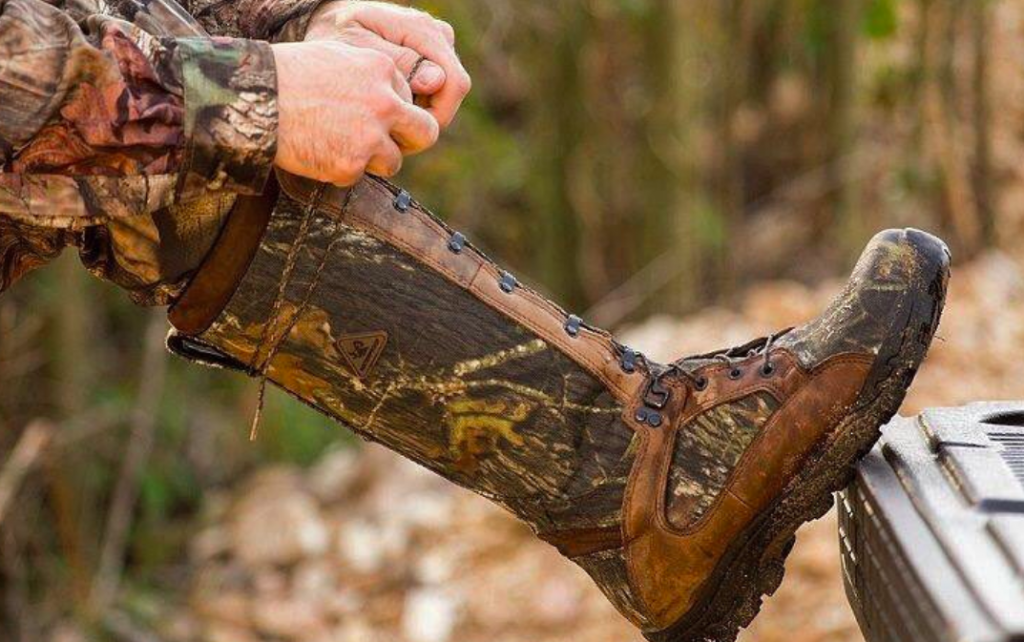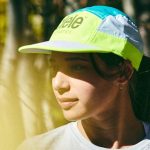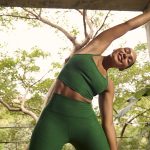Rocky Brands said that excluding a loss on the sale of its upscale sneaker brand Creative Recreation, earnings improved significantly in its fourth quarter ended December 31 and easily topped Wall Street’s targets.
Net earnings came to $4.4 million, or 59 cents per share, compared to a fourth quarter net loss of $634,249, or 9 cents a share, in the same period a year ago.
The latest quarter included an after-tax charge of $1.6 million associated with the loss on the November sale of the Creative Recreation brand. Due to the recently enacted tax reform, Rocky also recognized a one-time income tax benefit in the latest quarter of $2.9 million in the latest quarter. The year-ago quarter included a 2.0 million, after-tax, impairment charge for Creative Recreation. Excluding these items, adjusted net income was $2.8 million, or 37 cents, in the latest quarter against $1.3 million, or 18 cents, a year ago.
Revenues were flat at $67 million.
For the year, sales dipped 2.7 percent to $253.2 million. Net income came to $9.6 million, or $1.29 per share, against a loss of $2.1 million, or 29 cents, for 2016. Excluding non-recurring items, earnings were $8.6 million, or $1.16, well above earnings of $564,297, or 8 cents, a year ago.
“From a high level we have experienced solid top line trends in our branded footwear wholesale business, achieved mid-single-digit growth in our direct channel and delivered a record year in our military segment,” said Jason Brooks, president and CEO, on a conference call with analysts on the quarter. “At the same time, the initiatives we’ve implemented to expand margins including driving more full price selling in improving the efficiency of our Puerto Rican manufacturing facility, combined with our expense optimization efforts, allowed us to dramatically improve our profitability year-over-year and further, strengthened our balance sheet.”
By segment, wholesale sales for the quarter increased 4.7 percent to $44.4 million.
Brooks said wholesale sales growth accelerated and turned positive in the fourth quarter fueled by some demand for its core work, western and outdoor categories. The segment was also no longer cycling against a major private labeled program that had been discontinued in the third quarter of 2016.
In the third quarter, wholesale sales for the quarter decreased 12.9 percent to $46 million. The prior-year period included approximately $2.2 million in sales from the private label program that was discontinued. But the decline was greater than planned as all brands saw “modest shortfalls” versus projections.
Said Brooks on the fourth quarter, “We were particularly encouraged to see that our gains were broad-based in terms of our distribution with key brick-and-mortar accounts and even more so, E-tailored partners experienced solid sell-through of our product portfolio.”
Brooks added, “We worked hard to excite our consumers with great product, increased brand awareness, stimulate demand through improved marketing with an emphasis on digital and provide excellent retail support. I believe our fourth quarter wholesale performance indicates the initial progress we’ve made on each of these critical fronts.”
In the work footwear category, sales grew 10 percent in the quarter, led by double-digit improvement in Georgia Boot. Successes for Georgia Boot included its Essence collection of durable leather work footwear and its premium work hiker series. The work category also benefited from early selling of certain key spring work styles to meet deadlines on some major voucher programs.
In the western category, sales also grew double-digits in the quarter, fueled by strong gains for both its Durango and the Rocky brands. Key launches with the Rebel and Ultra-Lite collections support Durango’s gains. Durango’s work-styles in the category saw healthy replenishment orders at Boot Barn and Cavender’s. Brooks added, “By focusing on the work segment of the western market, we’ve been able to more than offset the industry-wide slowdown in demand for women’s fashion boots.”
Durango’s online business “also enjoyed a very good holiday season.” The launch of a Georgia Boot western work boots has been “positive.”
Hunting sales increased modestly year-over-year, aided in part by cold weather throughout much of the fourth quarter and a decision earlier last year to implement more aggressive pricing. Brooks added, “On the top of the pricing adjustment in favorable temperatures, our commitment to bring great new collections to market and support the brand with increased marketing has led to improved retailer support and increased shelf space for our core hunting products.”
The commercial military category saw a “challenging year” due primarily to higher channel inventory following the heavy sell-in late in 2016 due to a U.S. military mandated color change. However, the U.S. Air Force recently certified six Rocky S2V styles under their shape defined program, authorizing pilots and air crew members to wear S2Vs during the flight operations.
In its other segments, Retail sales increased 4.9 percent to $14.4 million, fueled by its Lehigh Outfitters custom fit program for safety footwear. Whirlpool, Fiat Chrysler and Blue Diamond have all signed up for the program late in the year.
Finally, Military segment sales fell to $8.2 million versus $10.9 million for the same period in 2016 due primarily to the impact of Hurricane Maria on its Puerto Rico facilities in September. The segment still scored a record year. Said Brooks, “The fact that we were able to ship over 8 million of product during the fourth quarter in difficult conditions is a testament to the resiliency of our people on the ground and the entire population, as everyone is working hard to repair the islands infrastructure and resume normal day-to-day life.”
The bottom line in the quarter was aided by a 230 basis point increase in gross margins to 34.8 percent. The improvement was attributed to higher wholesale margins due to improved full-price selling and reduced the level of discounting; higher military margins due to improved efficiencies in its Puerto Rican manufacturing facility, and a lower percentage of military sales, which carry lower gross margins.
SGA improved 50 basis points to 29.3 percent year-over-year. Excluding expense related to the Creative Recreation sale in Q4 this year, as well as a $3 million impairment charge related to the Creative Recreation brand recorded in the fourth quarter 2016, operating income improved to $4 million from $1.8 million a year ago.
Net earnings also benefited from a reduction in interest expense, decreased to $109,000 compared to $157,000 last year as a result of the significant reduction of the debt year-over-year.
Looking ahead, Brooks said the Wholesale segment began the year with “good momentum, which is contributing to our cautious optimism for continued growth.”
Brooks said its brands have opportunities to continue to gain shelf space at brick and mortar as well as online with accounts such as Amazon and Kohl’s, “where we believe our brands are under-penetrated and our runway for growth is significant.”
Said Brooks of the Wholesale segment, “The plan is to stay the course, that means continuing to invest appropriate amount of resources and product innovation, marketing, primarily digital programs that strengthen our consumer connections, increase awareness of our brands and products and drive increased demands consistently over the long-term.”
Brooks concluded, “In summary, we are excited about the direction that the company is headed. I’m confident that our focused strategies, which center on exciting new products, exceptional marketing, great customer service and operational excellence, will result in long-term profitable growth and increased value for our shareholders.”
Photo courtesy Rocky Brands
















